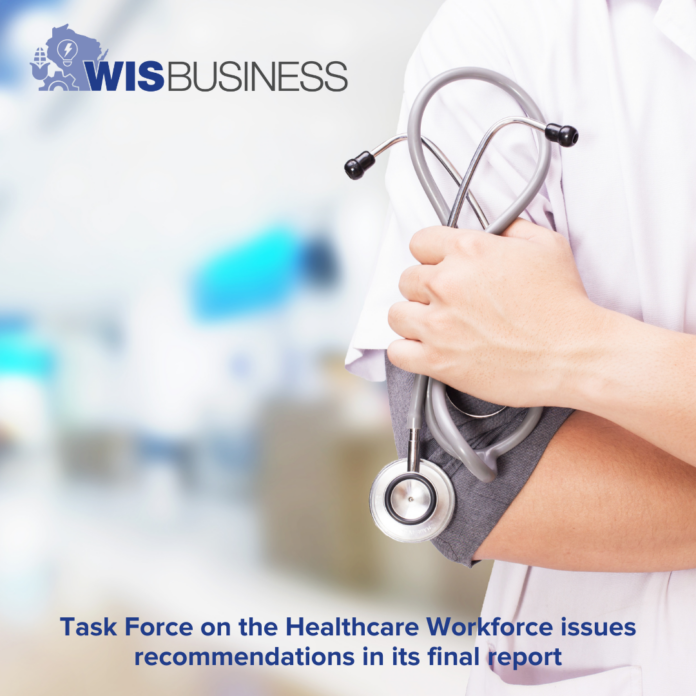The Governor’s Task Force on the Healthcare Workforce is calling for efforts to reduce barriers to training, expand Medicaid, boost incentives for those working in underserved areas and more.
Gov. Tony Evers yesterday announced the task force has issued its final report, which includes a wide array of recommendations for supporting Wisconsin’s health care workforce. He says the plan will bring more workers into the health sector and ensure access to care and a high quality of life.
“Making sure our workforce is prepared to meet the needs of a 21st-century economy is a top priority for me and must be a top priority for our state, including the State Legislature, and I look forward to working together and considering these recommendations in the next biennial budget,” he said in the release.
The advisory plan comes as Wisconsin is facing a “bleak future” for the health care workforce, according to Department of Workforce Development Secretary Amy Pechacek. She notes the state could be short up to 19,000 registered nurses by 2040 with nearly 32,000 annual job openings across health care populations through 2030.
To bolster the state’s educational framework for the field, the task force is recommending expanding incentive programs for health educators and boosting compensation for these faculty, which is usually lower than what health practitioners make.
The report also urges expanding simulation learning tools to give students more practical experience, increasing the size of training grants, and providing more state funding for apprenticeships.
Report authors also note expanding Medicaid would save the state an estimated $1.6 billion over two years, which could be allocated to Medicaid rate increases for hospitals and other health care employers. Plus, expanding Medicaid could encourage more workforce participation among health care workers who “sometimes limit hours of employment to retain public benefits,” they wrote.
The report also calls for rate increases for home and community-based services to better help the state’s aging population and those with disabilities, as well as behavioral health services rate increases.
Several recommendations are related to getting more medical professionals educated outside of Wisconsin into the workforce, including internationally educated health care providers and those certified in other states. While the state has entered multi-state licensing compacts for nursing, medicine and psychology, the report notes, it has yet to do so for social workers, dieticians and other professions.
“There’s a lot of other compacts that we can look at within Wisconsin, with other states as well,” Lt. Gov. Sara Rodriguez said yesterday during an online press conference. “We are in compacts with quite a few, but if you’re looking at behavioral health, or if you’re looking at social work, those types of compacts that are just starting, as well as … paramedic training, that is something that we can look at more broadly.”
Between March and August, the 25-person task force held meetings in Green Bay, La Crosse, Madison, and Milwaukee, where members received briefings from domain experts and other resources as they crafted their suggestions.
Along with the recommendations grouped into 10 focus areas, the 73-page report also includes analysis on the current state of Wisconsin’s health care workforce. It highlights the challenges of rural health care access, the high cost of health care education, recruitment hurdles in postsecondary education and burnout among health professionals.
See the guv’s release.






